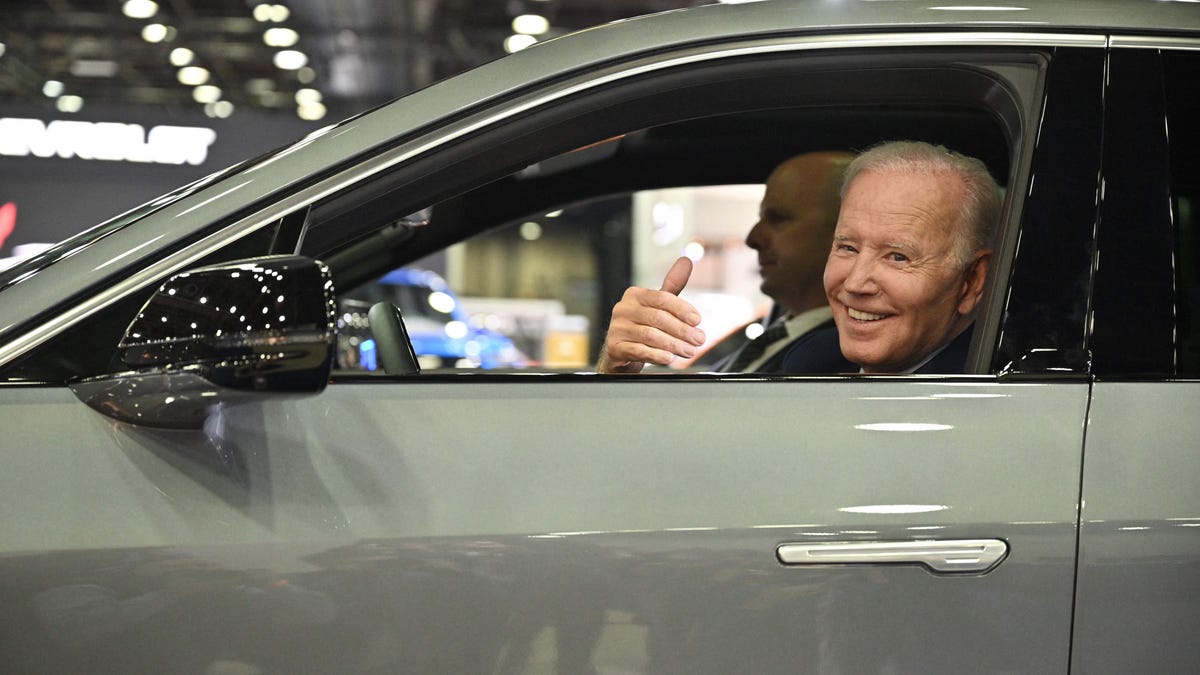President Joe Biden drastically hiked tariffs on Chinese electric vehicles as a way to protect the U.S. auto industry’s less-than-stellar EV effort as boatloads of new cheap EVs from China fail to reach our shore. The White House announced that it was imposing tariffs on $18 billion in Chinese goods – including a 100 percent tax on EVs made in China. Damn.
EVs obviously are not the only thing being targeted. The Biden Administration’s new tariffs also hit lithium batteries, solar cells and semiconductors, according to Business Insider. The rise in tariffs on Chinese EVs is a drastic one – jumping from 25 to 100 percent. It’ll certainly come as a relief for a very nervous (rightfully so) U.S. auto industry that doesn’t want to deal with cheap and good Chinese electric vehicles.
Just for some context, the previous 25 percent tariff was already too expensive for most Chinese automakers to justify selling vehicles in the U.S., so 100 percent can almost be looked at as overkill. In China, BYD sells cars for as little as $11,000. While that would be great, it’ll never happen here.
Some believe that these new tariffs will – along with killing competition from automakers who give a shit about electric vehicles – continue to escalate tensions between the U.S. and China. From the Associated Press:
This strategy further exacerbates tensions with a U.S. government that claims it’s determined to strengthen its own manufacturing to compete with China, yet avoid a larger conflict.
“China’s factory-led recovery and weak consumption growth, which are translating into excess capacity and an aggressive search for foreign markets, in tandem with the looming U.S. election season add up to a perfect recipe for escalating U.S. trade fractions with China,’’ said Eswar Prasad, professor of trade policy at Cornell University.
[…]
Biden’s Democratic administration views China with subsidies of its own manufacturing as trying to globally control the EV and clean-energy sectors, whereas it says its own industrial support is geared toward ensuring domestic supplies to help meet U.S. demand.
“We do not seek to have global domination of manufacturing in these sectors, but we believe because these are strategic industries and for the sake of resilience of our supply chains, that we want to make sure that we have healthy and active firms,” Treasury Secretary Janet Yellen said.
The tensions go far beyond a trade dispute to deeper questions about who leads the world economy as a seemingly indispensable nation. China’s policies could make the world more dependent on its factories, possibly giving it greater leverage in geopolitics. At the same time, the United States says it’s seeking for countries to operate by the same standards so competition can be fair.
China maintains the tariffs are in violation of the global trade rules the United States originally helped establish through the World Trade Organization. It accuses the U.S. of continuing to politicize trade issues and on Friday said the new tariffs compound the problems caused by tariffs the Trump administration previously put on Chinese goods, which Biden has kept.
Can I get a yikes in the chat, folks?
The idea of these new tariffs got kicked into high gear when reports circulated that Chinese automakers like Cherry, BYD and MG were planning to build factories in Mexico, according to Business Insider. This loophole to enter the U.S. vehicle market clearly spooked lawmakers in D.C. and around the country.
Looking ahead to the November Presidential Election, these tariffs still do not go as far as those proposed by former President Donald Trump. He’s reportedly said that he will introduce a 60 percent tax on all Chinese imports if he wins the 2024 election. Super.
Right now, this all sort of looks like a bunch of old folks playing catch up with much more competent products by – well – cheating, and the only people who are really hurt are American consumers.

